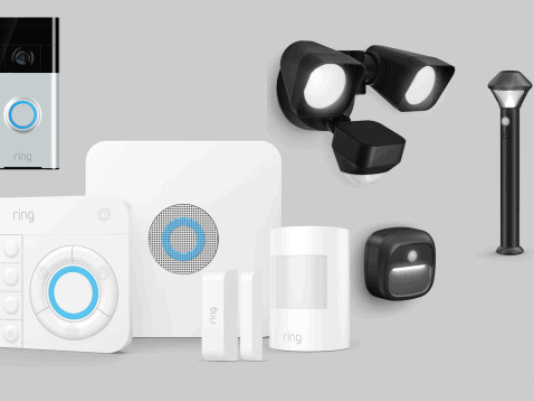
SAN FRANCISCO — Amazon is acquiring video doorbell-maker Ring in a move that further solidifies its presence in the home technology and delivery market.
The deal comes as Amazon tries to make its Alexa voice assistant a hub for the connected home and reduce one problem with its rapidly expanding delivery operation — package theft. It also gives Amazon another point of rivalry with Google, which has a competing Nest video doorbell.
The price for the deal was not disclosed, but Reuters reported it as over $1 billion.
Ring, based in Santa Monica, Calif., popularized the concept of the video doorbell, letting people see who was at the door from both inside the home and outside of it, via their smartphone.
Its Wi-Fi-enabled doorbells use motion detectors to know when someone approaches a door, then sends video and sound to the homeowner’s smartphone app. One of its key selling points is allowing owners to see video footage of who stopped in front of the door, which the company has described as a deterrent to would-be thieves.
Package snatched? You’re not alone.
It’s not Amazon’s first foray into this arena. In December the company bought Blink, a wireless security camera startup.
The acquisitions put Amazon in competition in a new category with its most heated rival, Google. The Internet giant’s Nest unit, which makes popular smart-home thermostats, is expanding into a video doorbell. The $229 Nest Hello ships in March, and will be packaged with a free edition of the Google Home Mini smart speaker, which normally sells for $49.99.
The Ring video doorbell starts at $179 and has expanded into a family of four doorbells, four security camera/lights and a floodlight.
Google and Amazon have been at odds over a variety of issues. Google yanked its YouTube unit off the Amazon Fire TV streaming player recently, complaining that Amazon wouldn’t sell Google products like the Nest and others in the Amazon store.
Ring’s products could potentially be combined with Amazon’s Key service, which gives Amazon Logistics delivery personnel permission to unlock a customer’s door for five minutes. Using the Cloud Cam, a new Amazon device shoppers first buy, the entire delivery is live-streamed to the customer and also sent as a video snippet.
Other makers of video doorbells include home security company Vivint and August, a company best known for making a smart lock that responds to Amazon’s Alexa and Honeywell.
Ring founder Jamie Siminoff created the original Ring product in his garage and launched the product with a tiny card table at the Consumer Electronics Show in 2011. It started shipping products in 2013.
Siminoff has become a public figure, offering his e-mail address on company packaging (j@ring.com) and appearing as a spokesman in his national TV ads. He’s also hawked the product many times on cable TV shopping channels. He appeared in 2013 on TV’s “Shark Tank,” trying to entice the TV investors into buying into his company. They declined the opportunity.
Investors in Ring include British airline magnate Sir Richard Branson’s Virgin Group, Science, Inc. president Peter Pham, Kleiner Perkins, DFJ Growth, Goldman Sachs and Qualcomm Ventures
Siminoff has said that his original idea was to come up with a product that would help fight crime, by shooing away would-be burglars looking to steal things off the front porch. A voice that responded to the doorbell ring, which via the smartphone app could be hundreds of miles away, and video footage, was enough to scare folks away, he said.
The acquisition will make it harder for other companies to compete in the ecosystem of smart home direct-to-consumer security, said Luke Schoenfelder, CEO of Latch, a New York City-based company that makes smart locks for apartment buildings and which doesn’t compete directly with Ring.
The biggest losers in this will be old-school security companies such as ADT and Alarm.com, he said.
“Amazon has amazing engineering teams and huge economies of scale on the cloud side. And now you pair that with these low-cost cameras and security hardware and you throw it at companies like ADT and Alarm.com who are not traditional technology companies — it makes for a pretty crazy market,” he said.
Other companies make voice-activated locks, like Schlage and August, but they’re difficult to install, as are most smart home products, which is why Key comes with professional installation.
Ring’s pitch since Day One has been a 5-minute install. Simonoff has told TV viewers that if they have trouble installing his product, he’ll come over and install it for them.
